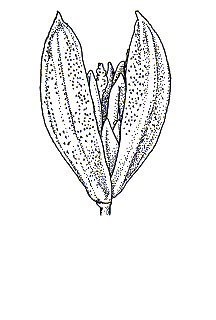Phleum subulatum* (Savi) Aschers. &
Graebn. Syn. Mitteleur. Fl. 2: 154 (1899).
Classification. (GPWG 2001) : Subfamily Pooideae.
Tribe Poeae.
Basionym and/or
Replacement Name: Phalaris
subulata Savi, Fl. Pis. 1: 57 (1798).
Type of Basionym or
Protologue Information: LT: Savi s.n., Italy: Monte Pisano (FI; ILT:
PI). LT designated by Baldini & Jarvis (1991: 482), Taxon 40:
475–485..
Key references
(books and floras): [2002] D.Sharp & B.K.Simon, AusGrass, Grasses of
Australia.
Illustrations:
[2009]. A.Wilson (ed.), Flora of Australia 44A: Poaceae 2 (241,
Fig.34).
Habit. Annual.
Culms geniculately ascending or decumbent, 7–42 cm tall, 1–6 -noded.
Leaf-sheaths glabrous on surface. Ligule an eciliate membrane, 2.5–5 mm long.
Leaf-blades 1–15 cm long, 1–5 mm wide. Leaf-blade surface scaberulous, glabrous
or indumented.
Inflorescence.
Inflorescence solid, a panicle. Panicle linear, 1–12 cm long, 0.3–0.9 cm wide.
Spikelets.
Spikelets pedicelled. Fertile spikelets 1-flowered, comprising 1 fertile
floret(s), with a barren rachilla extension, elliptic, laterally compressed,
(1.5–)2–4 mm long.
Glumes. Glumes
similar. Lower glume elliptic, membranous, much thinner on margins, keeled,
1-keeled, 3 -nerved. Lower glume apex mucronate. Upper glume elliptic,
(1.5–)2–4 mm long, membranous, keeled, 1-keeled, 3 -nerved. Upper glume surface
scabrous. Upper glume apex mucronate.
Florets.
Fertile lemma 1.5 mm long, without keel, 5–7 -nerved. Lemma surface indumented.
Lodicules present. Anthers 3.
Continental
Distribution: Europe, Africa, Temperate Asia, and Australasia.
Australian
Distribution: Queensland.
Queensland:
Moreton.


